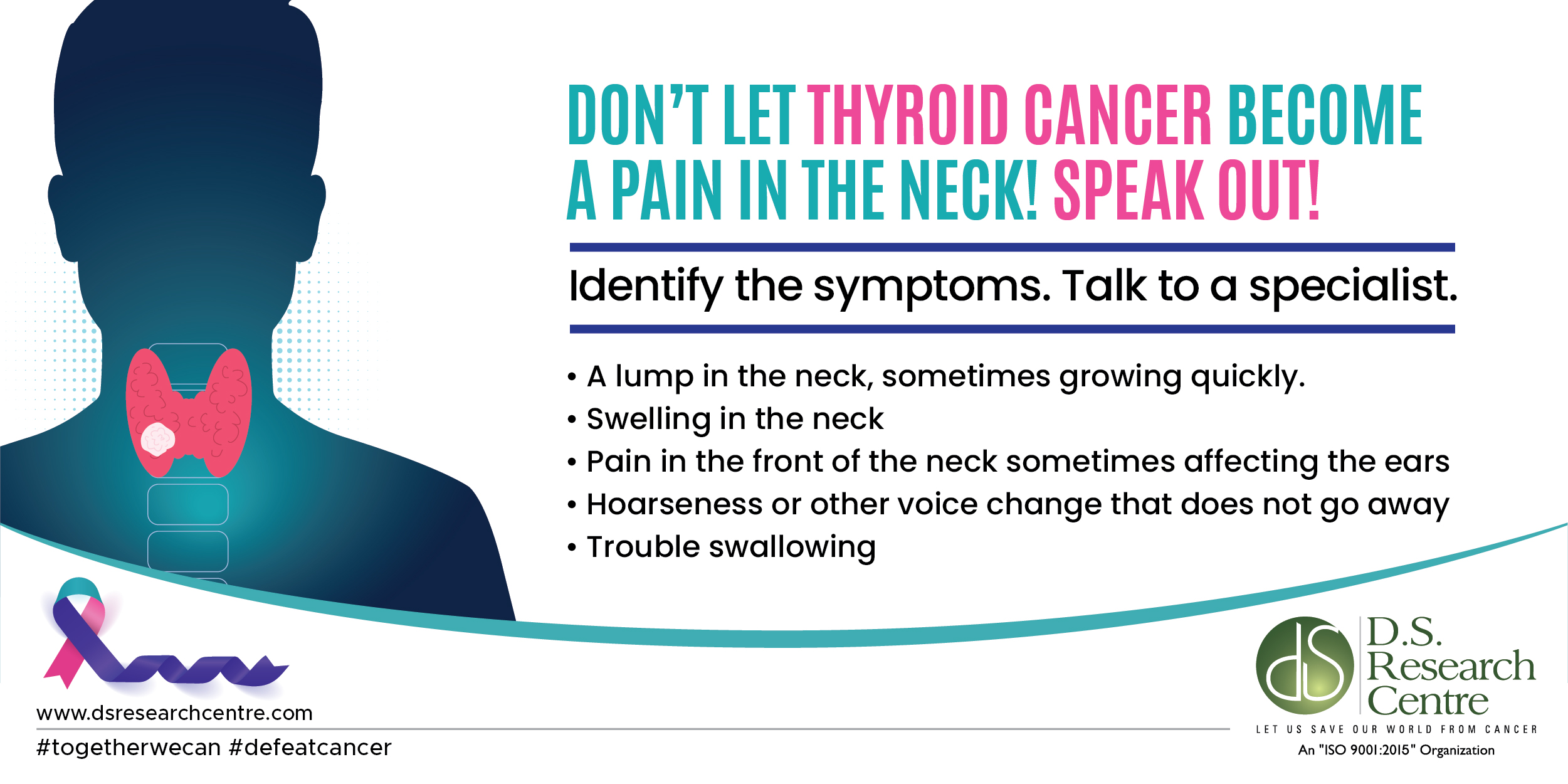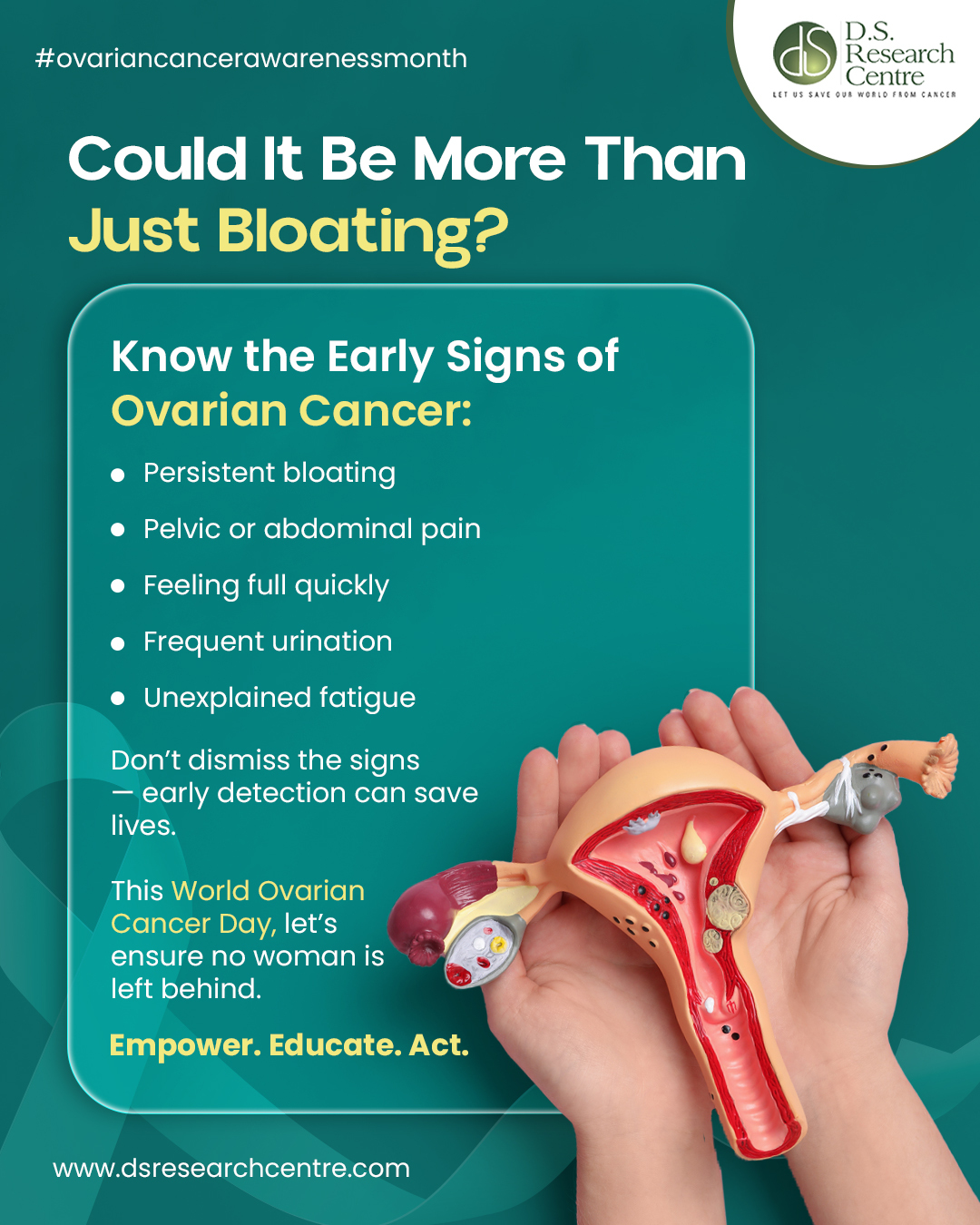The thyroid is the butterfly-shaped gland at
the base of the neck. The thyroid gland is a vital hormone gland. It plays a
major role in the metabolism, growth and development of the human body. It
helps to regulate many body functions by constantly releasing a steady amount
of thyroid hormones into the bloodstream. The thyroid produces hormones that
regulate heart rate, blood pressure, body temperature and weight.
Thyroid cancer is a growth of cells that starts in the thyroid. Having
an overactive thyroid gland (hyperthyroidism) or an underactive thyroid gland
(hypothyroidism) doesn't increase
your chances of developing thyroid cancer. Around 1 in 5 cases of
thyroid cancer occur in people who've had a previous benign thyroid condition. The
exact cause of most thyroid cancers is not yet known. Certain changes in a person's DNA can
cause thyroid cells to become cancerous.
For unclear reasons thyroid cancers (like
almost all diseases of the thyroid) occur about 3 times more often in women
than in men. Thyroid cancer can occur at any age, but the risk peaks earlier
for women (who are most often in
their 40s or 50s when diagnosed) than for men (who are usually in their 60s or
70s.
Signs and Symptoms of Thyroid Cancer
·
A lump in the neck, sometimes growing
quickly.
·
Swelling in the neck.
·
Pain in the front of the neck,
sometimes going up to the ears.
·
Hoarseness or other voice changes
that do not go away.
·
Trouble swallowing.
·
Trouble breathing.
·
A constant cough that is not due to a
cold.
Types of
thyroid cancer include:
- Papillary: Up to 80% of all thyroid cancers are
papillary. This cancer type grows slowly. Although papillary thyroid
cancer often spreads to lymph nodes in your neck, the disease responds
very well to treatment. Papillary thyroid cancer is highly curable and
rarely fatal.
- Follicular: Follicular thyroid cancer accounts for
up to 15% of thyroid cancer diagnoses. This cancer is more likely to
spread to your bones and organs, like your lungs.
- Medullary: About
2% of thyroid cancers are medullary. A quarter of people with medullary
thyroid cancer have a family history of the disease.
- Anaplastic: This aggressive thyroid cancer is the
hardest type to treat. It can grow quickly and often spreads into
surrounding tissue and other parts of your body. This is a rare cancer.
DIAGNOSIS
AND TESTS
Physical exam: Physical examination of your neck to feel for changes in your thyroid,
such as a lump (nodule) in the thyroid and may also ask about your risk
factors, such as past exposure to radiation and a family history of thyroid
cancers.

Thyroid function blood tests: that measure blood levels of
thyroid-stimulating hormone (TSH) and hormones produced by your thyroid gland
might give your health care team clues about the health of your thyroid.
Ultrasound imaging: Signs that a thyroid nodule is more
likely to be cancerous include calcium deposits (micro calcifications) within
the nodule and an irregular border around the nodule.
Biopsy: Removing a sample of thyroid tissue. Fine-needle aspiration for biopsy
Management and Treatment
Thyroid cancer treatment options depend on the
type and stage of your thyroid cancer. Most people diagnosed with thyroid
cancer have an excellent prognosis, as most thyroid cancers can be cured with
treatment
Treatment might not be needed right away for very small
papillary thyroid cancers (papillary micro carcinomas) because these cancers
have a low risk of growing or spreading. In
some people, the cancer might never grow and never require treatment.
*Surgery: Most people
with thyroid cancer that requires treatment will undergo surgery to remove part
or all of the thyroid.
Thyroidectomy
Thyroid lobectomy
lymph node dissection
*Thyroid hormone therapy
Thyroid hormone therapy is a treatment to
replace or supplement the hormones produced in the thyroid. Thyroid hormone
therapy medication is usually taken in pill form.
*Radioiodine therapy
Treatment for advanced thyroid cancer:
Chemotherapy
Radiation therapy
Targeted therapy
This cancer is more likely to spread to your bones and
organs, like your lungs.
Warning signs:
You might feel a lump or growth in
your neck called a thyroid nodule. Most
nodules are benign.
• Difficulty
breathing or swallowing.
• Loss
of voice (hoarseness).
• Swollen
lymph nodes in your neck.
Factors causing Thyroid Cancer
Enlarged thyroid (goitre)
• Family
history of thyroid disease or thyroid cancer.
• Inflammation
of your thyroid gland.
• Gene
mutations (changes) that cause endocrine diseases, such as multiple endocrine neoplasia
type 2A (MEN2A) or type 2B (MEN2B) syndrome.
• Low
iodine intake.
• Obesity
• Radiation
therapy of head and neck especially during childhood.
• Exposure
to radioactive fallout from nuclear weapons or a power plant accident.








Posted on April 15, 2016
Posted on April 15, 2016